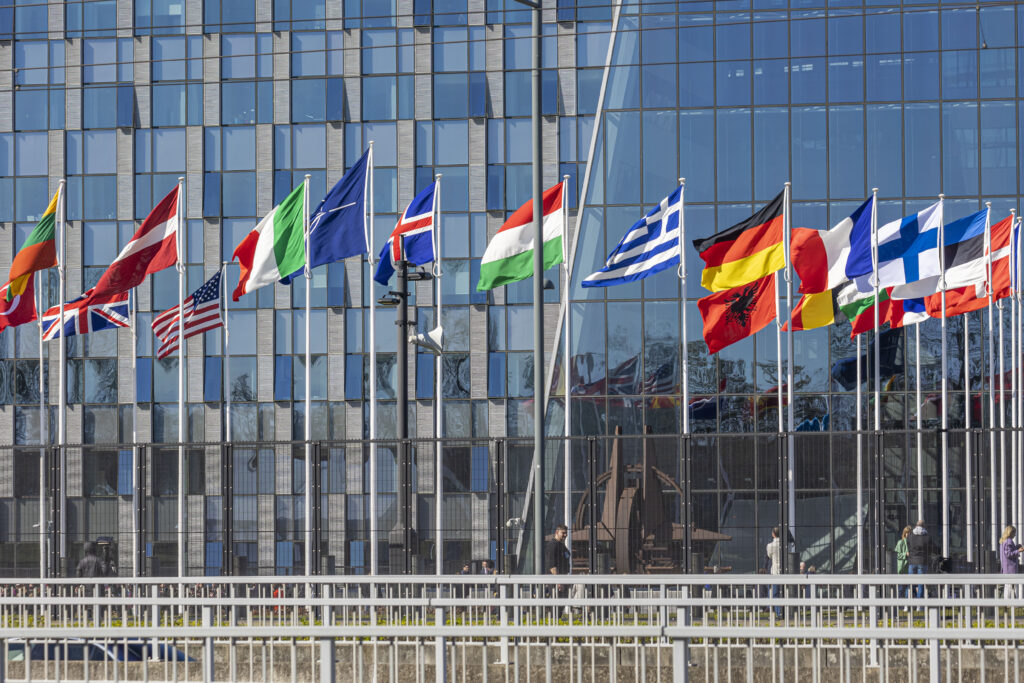NATO admiral Rob Bauer warns of growing military cooperation between Russia and China in the Arctic

In a speech delivered at the Arctic Circle Conference in Reykjavík, Iceland, Admiral Rob Bauer, Chair of the NATO Military Committee, discussed the growing strategic importance of the Arctic region for the alliance. He warned of increasing military activities by Russia and China in the area, particularly in light of Russia’s heightened military presence and cooperation with China. Admiral Bauer’s speech comes at a time when NATO’s Arctic allies are stepping up efforts to bolster regional defense capabilities.
Admiral Bauer noted the significance of Sweden and Finland joining NATO, reinforcing the alliance’s presence in the High North. Nordic countries, he said, are investing deeply in their defense capabilities, including expanding their fleets of jets and ships to enhance patrolling and detecting potential threats, such as non-allied submarines.

“The historic accession of Sweden and Finland makes NATO stronger,” Bauer stated. “Nordic allies are investing deeply in their capabilities and equipment. That means more jets and ships to better patrol the Nordic skies and seas.”
One of the key initiatives he discussed was the newly launched North Link project, which aims to develop resilient and reliable satellite communications for the Arctic region. This initiative comes at a time when Russia’s military footprint in the region is expanding, with a major naval and air exercise conducted in September, involving nuclear submarines under the Arctic ice cap.
“Russia is continuing to ramp up its military presence in the Arctic,” Bauer warned. “Russia’s largest force is stationed on the Kola Peninsula, which shares a border with Norway and Finland. China joined Russia in the Ocean 24 exercise, and at the start of this month, China’s coast guard vessels entered the Arctic Ocean for the first time, patrolling the waters jointly with Russian ships.”
In addition to military actions, Bauer highlighted the growing cooperation between Russia and China in the region. He cited not only military exercises, but also new economic partnerships between the two nations, such as a shipping line along the Northern Sea Route.

“Two years ago, the Chinese ambassador to Iceland accused me of paranoia and arrogance when I predicted at this conference that China would go into the Arctic Ocean. And as it turns out, it was in a way, unfortunately, an accurate prediction,” he said.
Amidst these developments, NATO is also strengthening its defense posture. Bauer pointed to NATO’s commitment to securing the region’s critical infrastructure, noting that “NATO and allies are dedicated to the security of undersea pipelines and cables,” and detailing the alliance’s efforts to establish specialized maritime centers and coordination cells for this purpose.
Bauer reiterated that the Arctic is a vital region for NATO, linking North America and Europe, and is critical for trade and communications. He called for continued vigilance in light of climate change, which is rapidly reshaping the region and opening new, strategically important shipping routes.
“Climate change is rapidly reshaping the Arctic, which is warming almost four times faster than the rest of the world,” Bauer said. “If these routes open up, there is a military challenge of strategic importance.”

Concluding his speech, Admiral Bauer reaffirmed NATO’s commitment to deterring aggression and protecting its allies.
“NATO allies will continue to deter aggression, protect our values and interests, and keep our people—1 billion people—safe,” he said. “This has been our mission for 75 years and NATO will always keep fighting for freedom, democracy, and upholding the rules-based international order.”